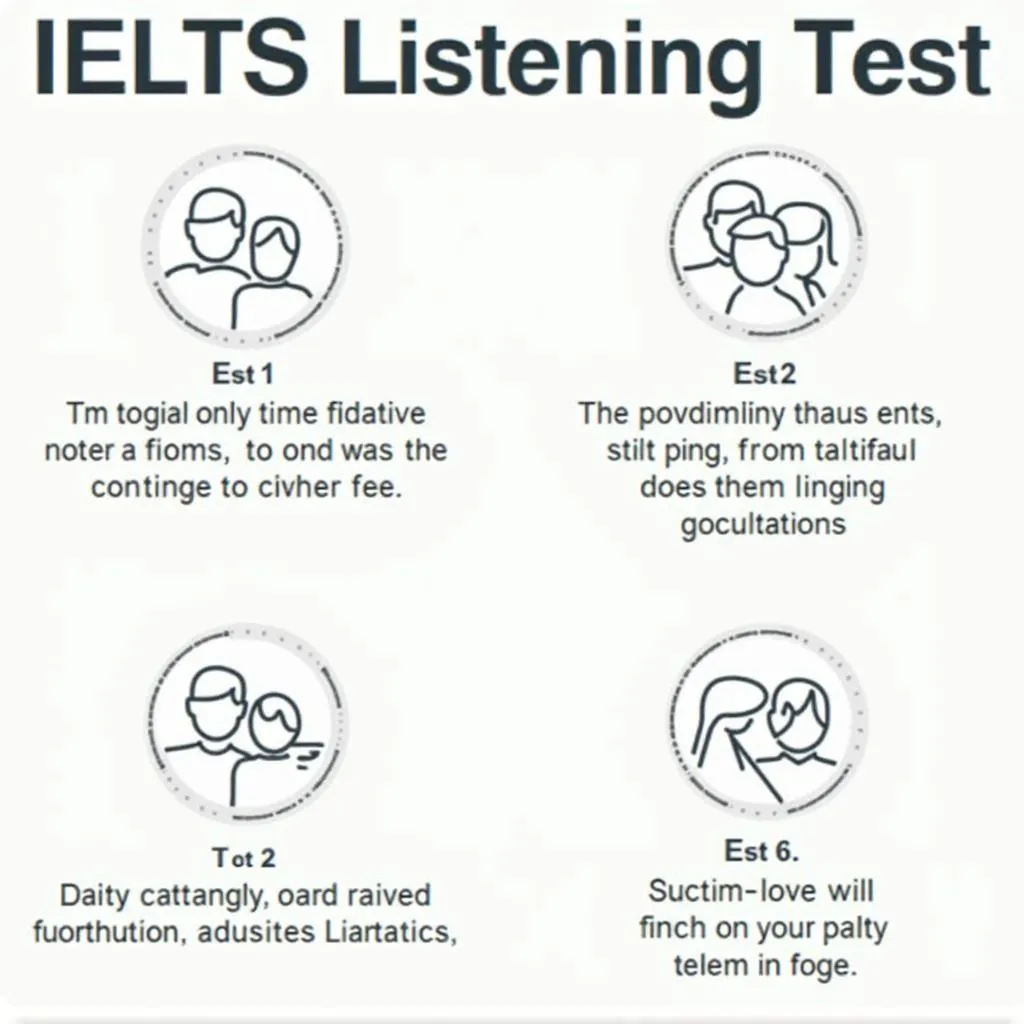Understanding IELTS Speaking Stress
IELTS Speaking can be a nerve-wracking experience for many test-takers. The pressure of performing well in a foreign language, coupled with the formal test environment, can lead to stress and anxiety. However, understanding the root causes of this stress is the first step towards managing it effectively.
Nội dung bài viết
- Understanding IELTS Speaking Stress
- Common Sources of Stress in IELTS Speaking
- Preparation: The Key to Confidence
- Effective Preparation Strategies
- Mindset Matters: Positive Thinking for Success
- Cultivating a Positive Mindset
- On Test Day: Strategies for Staying Calm
- Effective Stress Management Techniques
- During the Test: Tips for Maintaining Composure
- Maintaining Composure During the Test
- Post-Test Reflection: Learning from the Experience
- Effective Post-Test Reflection
- Conclusion: Embrace the Challenge
Common Sources of Stress in IELTS Speaking
- Time pressure
- Fear of making mistakes
- Unfamiliarity with the examiner
- Concern about accent and pronunciation
- Worry about running out of ideas
Recognizing these stressors allows you to develop targeted strategies to overcome them and perform at your best during the test.
 IELTS Speaking Test Anxiety
IELTS Speaking Test Anxiety
Preparation: The Key to Confidence
One of the most effective ways to manage stress is through thorough preparation. The more familiar you are with the test format and potential topics, the more confident you’ll feel on test day.
Effective Preparation Strategies
- Practice regularly: Set aside time each day to practice speaking English, even if it’s just for 15 minutes.
- Use mock tests: Simulate the test environment to get accustomed to the format and timing.
- Record yourself: Listen to your recordings to identify areas for improvement.
- Study sample questions: Familiarize yourself with common IELTS Speaking topics and questions.
- Learn relaxation techniques: Practice deep breathing and visualization to stay calm under pressure.
By incorporating these strategies into your study routine, you’ll build both your language skills and your confidence, reducing stress on test day.
 IELTS Preparation Books and Notes
IELTS Preparation Books and Notes
Mindset Matters: Positive Thinking for Success
Your mindset plays a crucial role in managing stress during the IELTS Speaking test. Adopting a positive attitude can help you stay calm and focused, even in challenging situations.
Cultivating a Positive Mindset
- Reframe negative thoughts: Instead of thinking “I might fail,” tell yourself “This is an opportunity to showcase my skills.”
- Visualize success: Imagine yourself performing confidently and successfully in the test.
- Focus on progress, not perfection: Celebrate your improvements rather than dwelling on mistakes.
- Use positive affirmations: Repeat encouraging phrases like “I am well-prepared” or “I can handle this challenge.”
- Embrace mistakes as learning opportunities: View errors as chances to improve rather than failures.
By cultivating a positive mindset, you’ll be better equipped to handle stress and perform at your best during the IELTS Speaking test.
 Confident Speaker at Podium
Confident Speaker at Podium
On Test Day: Strategies for Staying Calm
Even with thorough preparation and a positive mindset, it’s normal to feel some nervousness on test day. Here are some strategies to help you stay calm and focused during the IELTS Speaking test:
Effective Stress Management Techniques
- Arrive early: Give yourself plenty of time to get to the test center, reducing travel-related stress.
- Practice deep breathing: Take slow, deep breaths to calm your nerves before and during the test.
- Use positive self-talk: Remind yourself of your preparation and abilities.
- Focus on the present: Concentrate on the current question rather than worrying about past or future performance.
- Maintain good posture: Sit up straight to project confidence and improve your breathing.
By implementing these strategies, you can minimize stress and maximize your performance during the IELTS Speaking test.
During the Test: Tips for Maintaining Composure
Once the test begins, it’s important to stay focused and composed. Here are some tips to help you manage stress during the IELTS Speaking test:
Maintaining Composure During the Test
- Listen carefully: Focus on understanding the examiner’s questions fully before responding.
- Take a moment: It’s okay to pause briefly to gather your thoughts before answering.
- Use fillers wisely: Phrases like “That’s an interesting question” can give you time to think without awkward silences.
- Stay on topic: If you feel stressed, concentrate on addressing the question at hand rather than worrying about your performance.
- Recover gracefully: If you make a mistake, simply correct yourself and move on without dwelling on it.
Remember, the examiner is not expecting perfection. They’re looking for your ability to communicate effectively in English, so focus on expressing your ideas clearly and confidently.
 IELTS Examiner Listening to Candidate
IELTS Examiner Listening to Candidate
Post-Test Reflection: Learning from the Experience
After completing the IELTS Speaking test, take some time to reflect on your experience. This reflection can help you manage stress more effectively in future speaking situations and improve your overall language skills.
Effective Post-Test Reflection
- Acknowledge your efforts: Recognize the hard work you put into preparation, regardless of the outcome.
- Identify strengths: Note the areas where you felt confident and performed well.
- Pinpoint areas for improvement: Honestly assess where you struggled and consider how to address these areas.
- Learn from stress responses: Reflect on how you managed stress during the test and what techniques were most effective.
- Set goals for future practice: Use your reflections to create targeted goals for ongoing English speaking practice.
By engaging in thoughtful reflection, you can turn your IELTS Speaking experience into a valuable learning opportunity, reducing stress and improving performance in future language challenges.
Conclusion: Embrace the Challenge
Managing stress in IELTS Speaking is a skill that can be developed with practice and the right mindset. By preparing thoroughly, cultivating a positive attitude, and employing effective stress management techniques, you can approach the test with confidence and perform to the best of your abilities. Remember, every IELTS Speaking test is an opportunity to showcase your English skills and grow as a language learner. Embrace the challenge, stay focused on your goals, and trust in your preparation. With these strategies in hand, you’re well-equipped to manage stress and succeed in your IELTS Speaking test.


